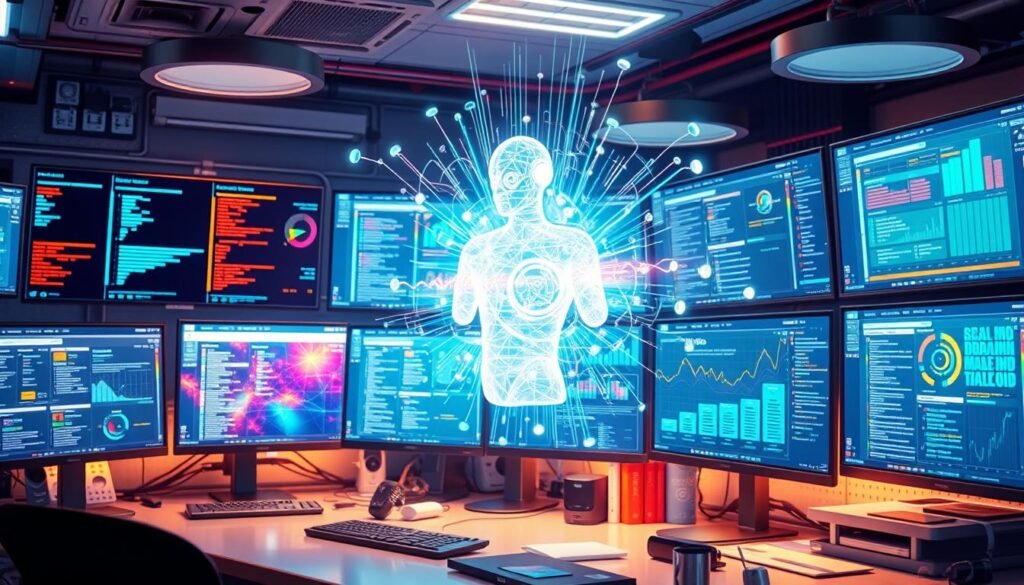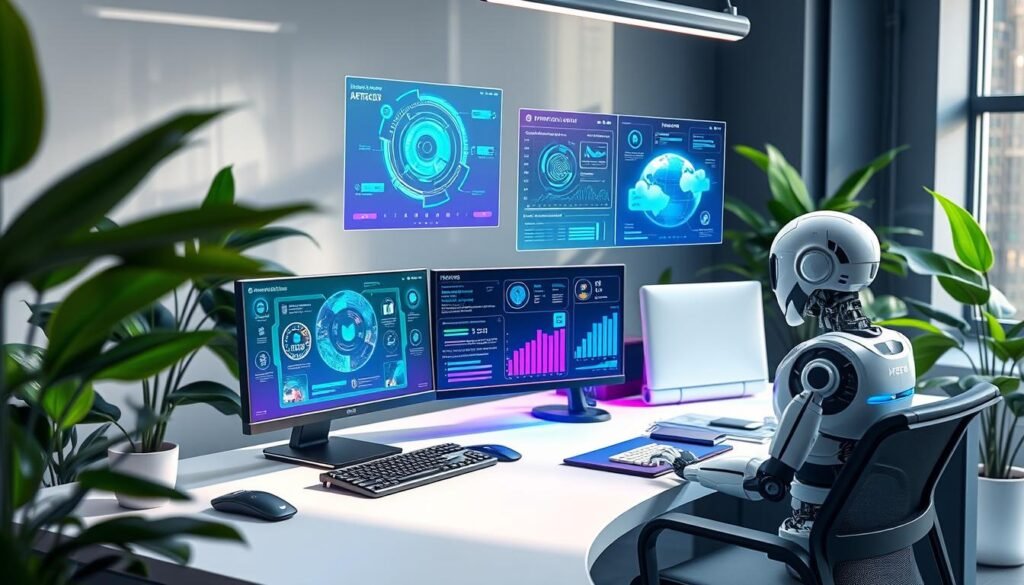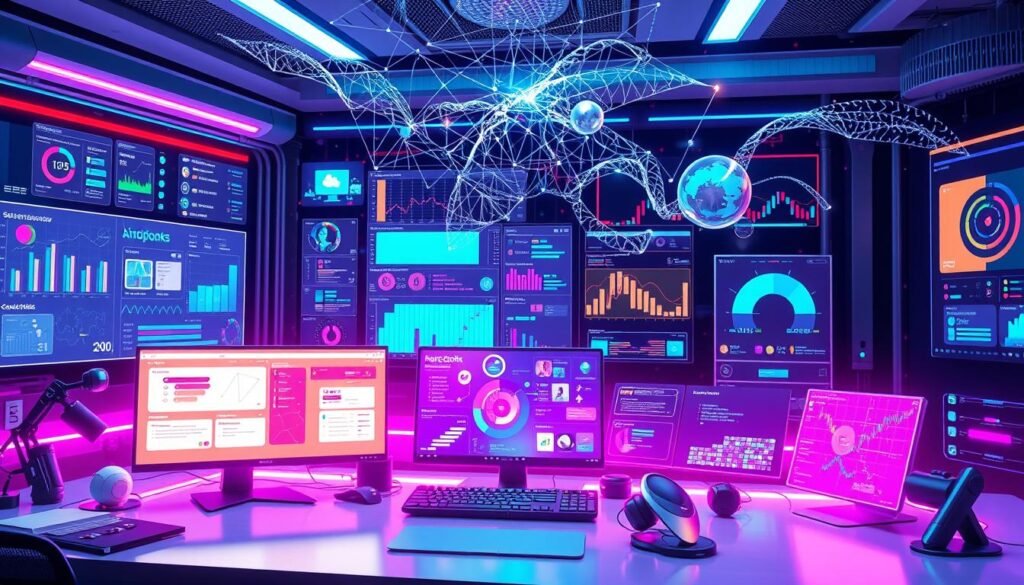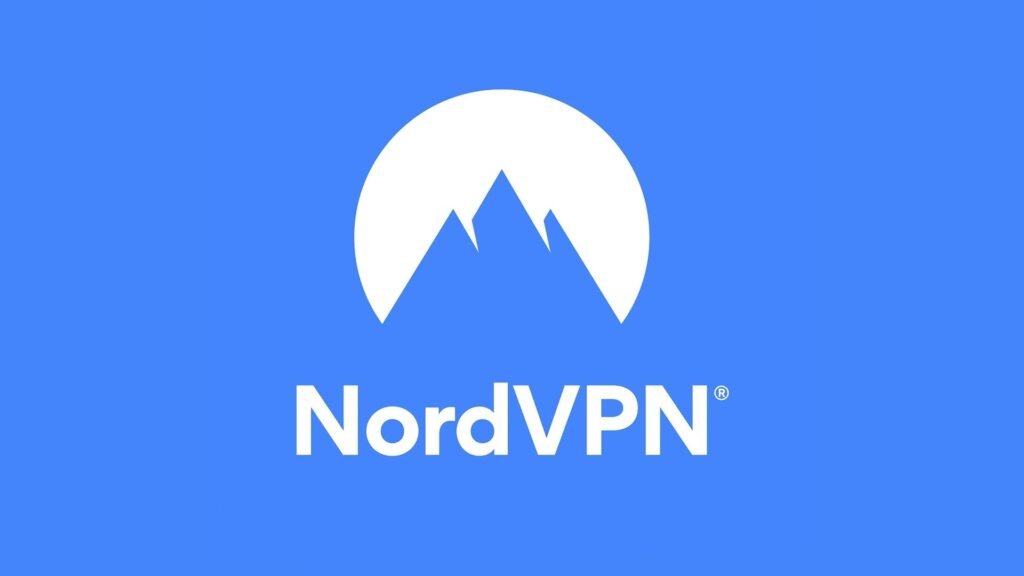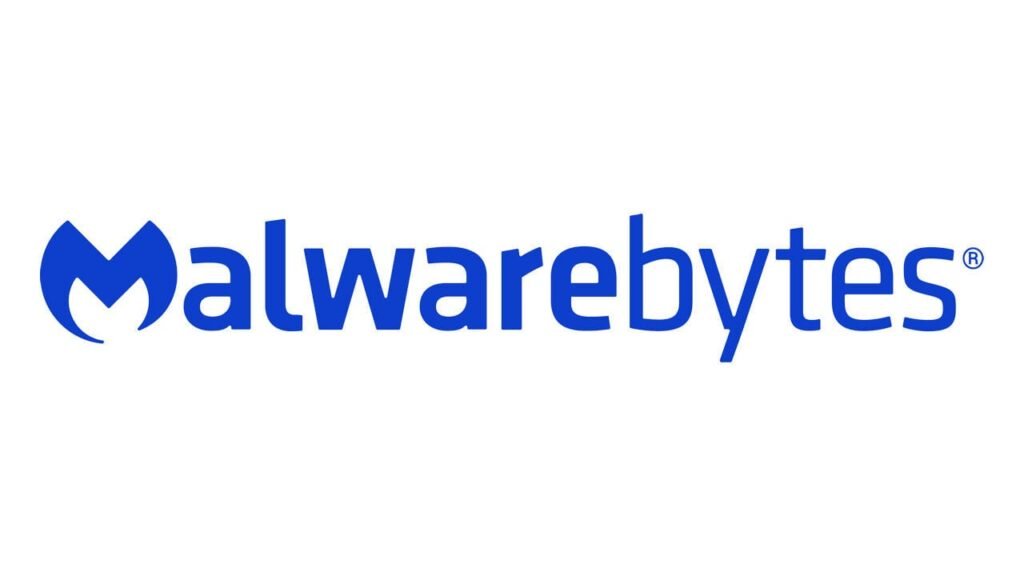Did you know 52% of knowledge workers multitask during virtual meetings? Yet, more than 25% miss crucial actions and updates1. This shows how hard it is to balance tasks in today's fast world. Large language models (LLMs) like GPT-4 are changing how we multitask. They help you manage several projects at once, making you more efficient2.
Exploring AI's role in multitasking, you'll see how important structured AI solutions are. They help you manage your workload and stay focused. This article will show you how AI can make your work life more productive.
Key Takeaways
- 52% of knowledge workers multitask during meetings, which can lead to missed updates.
- LLMs like GPT-4 excel in superposition, handling multiple tasks effectively.
- Chronic multitaskers are prone to forgetfulness, impacting productivity.
- AI solutions can significantly reduce cognitive load and improve focus.
- Structured AI multitasking can redefine efficiency in various industries.
- Professionals average 25.6 meetings per week, underscoring the need for effective task management.
Understanding Multitasking in the Modern Workplace
Multitasking means doing many tasks at once or quickly switching between them. It's common in today's fast work world. Many think it makes them more productive. But, it's key to know the challenges of multitasking.
Research shows multitasking can help with simple tasks but hurts complex ones. It can make your brain work harder and slower over time.
Definition of Multitasking
Multitasking includes different ways of doing tasks, like switching between them quickly. This might seem like it boosts productivity3. But, doing many things at once can harm brain function3.
So, while AI multitasking benefits are promising, they must be balanced with the downsides.
Challenges of Human Multitasking
Multitasking has its downsides. Studies show it can lower work quality. For example, it can make organizing thoughts harder and decrease performance by 20% in complex tasks4.
Switching tasks can cost 1 to 5 seconds, hurting creativity and leading to poor results5.
Workplace interruptions can take up to 28% of a worker's day, or about 2.1 hours daily4. These interruptions increase errors and stress5.
While multitasking might seem to boost productivity at first, it can actually make things worse over time. Using smart strategies in your work can help avoid these problems and improve your efficiency.
How Multitasking Impacts Your Health
In today's fast world, multitasking and health are key topics. They're closely linked. The downsides of multitasking are becoming clear, especially in jobs that need constant focus on many tasks. Studies show multitasking can harm our minds and work skills.
Negative Effects of Multitasking
Research shows worrying trends in multitasking. For example, only 2.5% of people in a study could multitask without losing focus6. Doing many things at once can lead to forgetfulness and mistakes, hurting our memory and learning over time7. Nurses, for instance, are often interrupted, leading to more mistakes6. These breaks can make it hard to focus and control our thoughts7.
Insights from Neuroscience
The neuroscience of multitasking shows it can slow us down. Doing many tasks at once messes with our brain's attention centers, making us slower and more prone to errors7. Also, 72% of workers feel forced to multitask, which can lead to burnout8. But, some multitasking, like walking and thinking, can actually help creativity, showing that how we multitask matters7.
Why AI is Essential for Effective Multitasking
Adding artificial intelligence to your work can change how you multitask. AI automates simple tasks, which cuts down on mental effort. This makes you more productive and lets you focus on important tasks that need your skills.
With the right AI tools, you'll see big improvements in how you get things done. The AI multitasking benefits are clear, making your daily tasks more efficient and effective.
The Role of AI in Reducing Cognitive Load
AI is a great help in managing mental tasks. It takes on repetitive jobs, easing the load on your brain. For example, new AI models can handle many tasks at once without overloading you.
These models, like GPT-4, have gotten better at this. They can work on several tasks without making you feel overwhelmed9. Using AI makes complex tasks easier, freeing up your mind for other important thinking.
Benefits of AI in Task Management
The benefits of AI in task management are huge. Tools like custom GPTs and automation apps boost your productivity a lot. New AI tech can do hundreds of tasks with little loss of accuracy10.
Choosing the right AI tools for your needs is key. Working with AI, not just using it, helps you manage tasks better. Staying updated with AI advancements keeps you ahead in a fast-changing world11.
| AI Tools | Functionality | Key Benefits |
|---|---|---|
| Custom GPTs | Engage in advanced tasks while managing multiple workflows | Enhanced multitasking efficiency |
| Chatbots | Automate customer interactions and provide support | Streamlined communication processes |
| Automation Tools | Perform routine tasks without human intervention | Reduced cognitive load and increased focus on strategic tasks |
As work roles change, using AI can make handling different tasks much better11910.
AI-Powered Tools for Enhancing Productivity
In today's fast-paced work environment, using AI efficiency tools can boost your productivity. There are many top AI multitasking tools that make tasks easier. These tools help you focus on what's important, making your work more efficient.
Top AI Tools for Multitasking
Several AI-powered tools can make your tasks easier:
- Supernormal: This tool automates note-taking and scheduling. It lets you focus on meetings without worrying about missing important details.
- Freedom: It blocks unwanted websites and apps. This helps you stay focused on your work.
- Sunsama: A task management tool that helps you plan and prioritize tasks. It makes balancing your work easier.
How These Tools Automate Routine Tasks
AI tools do more than just make things easier. They automate tasks like:
- Note-taking: AI tools like Supernormal record and retrieve meeting notes. This lets you fully participate in discussions.
- Scheduling: Tools use AI to manage your calendar. They send reminders and suggest the best meeting times for you.
- Task Prioritization: Tools like Sunsama sort and prioritize your tasks. They do this based on deadlines and importance.
These AI tools are a smart way to handle daily tasks. They reduce the mental effort needed for multitasking. Using these tools can lead to better workflow management and increased productivity1213.
How AI Helps with Multitasking Efficiency
AI changes the game in the workplace by making multitasking better. It uses smart algorithms to handle many tasks at once, beating humans. This is key for productivity, as switching tasks can cost up to five weeks of work each year14.
Our attention spans have dropped from 150 seconds in 2004 to just 47 seconds today14. AI helps companies work more efficiently and less distracted.
AI’s Ability to Process Multiple Tasks
AI is great at handling lots of data fast, spotting trends for better decisions. This leads to big productivity boosts for those using it. For example, multitasking can cut productivity by 40%15.
AI keeps workflows smooth, cuts delays, and lowers errors, ensuring tasks are done right16.
Examples of AI Applications in Multitasking
AI helps in many fields, making work more efficient. In healthcare, AI sorts patient visits by urgency, making things run smoother. In customer service, chatbots offer 24/7 help, speeding up responses16.
Interestingly, 72% of workers feel forced to multitask, which can lower their performance by 15% and lead to mistakes15. AI in business solves these problems, making work better for everyone.
Strategies for Implementing AI in Your Workflow
Adding AI to your daily tasks can really boost your productivity. By using strategies for AI integration, you can unlock the full potential of AI multitasking solutions. This is especially true in today's tech world.
Creating a Daily Routine with AI Tools
Setting up a daily routine with AI tools can change how you tackle tasks. Many people find that using apps made for multitasking, like Multi User Task Manager, makes them more efficient17. These apps let you work in split-screen mode, which can make you up to three times faster with shortcuts17.
Most Androids and modern iPads support split-screen multitasking. You can drag and drop apps and adjust their sizes for better performance17. Sticking to two apps at a time helps avoid info overload and keeps your focus sharp17.
Tips for Integrating AI into Task Management
To smoothly add AI to your task management, try AI-driven time management. This includes smart scheduling and task prioritization to boost productivity18. Automating routine tasks lets you dive into more meaningful work18.
It's key to stay focused and avoid multitasking too much. AI tools help you sort tasks, leading to a better work-life balance and less stress18. Using the ROTI (Return on Time Invested) filter for AI tools ensures you manage your time well. This leads to better workflow improvements18.
| AI Strategy | Description | Benefits |
|---|---|---|
| Task Prioritization | Applying AI to determine high-priority tasks | Increased focus and better time management |
| Smart Scheduling | Utilizing AI for optimal time allocation | Enhanced productivity and reduced stress |
| Automation | Freeing up time by automating mundane tasks | Focus on strategic projects and enhance creativity |
| Split-Screen Multitasking | Managing two apps simultaneously on one screen | Improved task efficiency and speed |
Real-World Examples of AI Improving Multitasking
AI is changing how businesses work by making multitasking better in many areas. Real-world examples of AI show how companies use AI tools to automate tasks and get more done. These stories of AI success show the real benefits of using new tech.
Case Studies in Various Industries
Healthcare, finance, and retail are using AI to make things more efficient. In healthcare, AI quickly analyzes patient data, helping doctors make faster diagnoses. Retailers use AI to manage stock, predict sales, and make shopping more personal, all boosting productivity.
AI also helps with managing multiple tasks at once. This is called Multi-Task Learning (MTL). It makes operations run smoother19.
Success Stories from AI Integration
Many companies have seen big wins with AI. For example, a bank used AI to analyze data faster, freeing up time for important decisions. Stories of AI success show it makes work easier and less stressful, leading to a better work environment.
By using AI, companies can do more with less, making work more efficient20.
Future Trends in AI and Multitasking
The future of AI looks bright for multitasking in many areas. Big steps in artificial intelligence, like large language models (LLMs), are changing work. These advancements mean AI will soon do many tasks at once, a skill called “superposition”21.
This skill boosts productivity. AI can now handle complex tasks well, thanks to models like GPT-421.
Predictions for AI Advancements
By 2026, over 7.5 billion people will use smartphones, showing how important personalized content is22. AI's predictive tools will help keep users engaged and make work more efficient22. AI and augmented reality will also make learning and shopping more fun, improving how we interact with technology22.
How AI Will Shape the Future of Work
AI is changing how we multitask at work. It can do many jobs without needing to be taught, which is big for fields like healthcare and law21. AI's ability to handle complex tasks could change how we think and learn, raising questions about self-awareness21.
In this new world, humans might think differently, using their brains in new ways. AI will take on complex tasks, opening doors to new work methods.
Conclusion
AI is changing how we multitask, making it more than just a trend. It's a big change that can really boost your work. With AI, you can do more important tasks and feel less stressed.
AI helps you focus on the big picture, not just the small stuff. This makes your work better and more efficient. It's like having a super-smart assistant that helps you do more.
Using AI could make the world economy grow by up to $15.7 trillion by 203023. It's also shown to make you up to 40% more productive24. So, adding AI to your work can make a huge difference.
AI is not just for keeping up; it's for excelling in a fast-changing world. By using AI, you'll likely do better at work and feel happier. The future looks bright for those who use AI well25.


